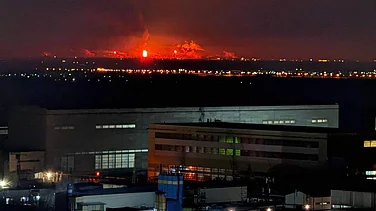The United Kingdom has announced a "significant" rise in the fees and health surcharge paid towards the UK’s state-funded National Health Service (NHS) by visa applicants from around the world, including Indians. The move announced by Prime Minister Rishi Sunak faced criticism from doctors and medical practitioners who said they were "appalled", as it would see migrants pay double to use the NHS.
The British Indian leader, who was under pressure to accept the recommendation of an independent review of pay for teachers, police, junior doctors and other public sector workers, confirmed a hike between 5 and 7 per cent across the board. However, he stressed that this would not be met with higher government borrowing for fear of further stoking high inflation and therefore the costs would need to be found elsewhere.
“If we’re going to prioritise paying public sector workers more, that money has to come from somewhere else because I’m not prepared to put up people’s taxes and I don’t think it would be responsible or right to borrow more because that would just make inflation worse,” Sunak told reporters at a Downing Street press conference.
“So, what we have done are two things to find this money. The first is, we are going to increase the charges that we have for migrants who are coming to this country when they apply for visas and indeed something called the Immigration Health Surcharge (IHS), which is the levy that they pay to access the NHS," he said.
Why did Rishi Sunak announce the fee hike?
Rishi Sunak's decision to increase the fees and surcharge comes after a strike by junior doctors in UK. The doctors staged a five-day walkout in what is thought to be the longest single period of industrial action in the history of the health service. The doctors said that pay has decreased by more than a quarter since 2008 when inflation is taken into account - and many doctors are burnt out from an increasing workload.
The doctors demanded a 35 percent hike which was way above the 5 percent pay offer they were given. In his wage announcement, Sunak warned that his offer was "final" and further industrial action would not change that decision. "There will be no more talks on pay. We will not negotiate again on this year's settlements and no amount of strikes will change our decision. Instead, the settlement we’ve reached today gives us a fair way to end the strikes. A fair deal for workers and a fair deal for the British taxpayer," he declared.
How much will Indians have to pay?
According to a report by FREETH, the government is likely to hike work visa fees by 15 percent. All other visa fees will rise by at least 20 percent.
Accordingly, if you are immigrating to the UK with a skilled worker visa (where a certificate of sponsorship has been issued for three years or less), you will have to pay £718 ( ₹77,147). Currently the fees for this visa category is £625.
The immigration health surcharge first introduced in 2005 at £200 per application, doubled to £400 in 2018 and further rose to £624 in 2020 for adults. The full details of which categories of visas will face hikes and when the new higher rates come into force are expected to be laid out by the UK Home Office in the coming months.
Why is the hike being criticised?
Doctors in Unite, which represents junior doctors, general practitioners and hospital consultants, said it was "appalled" at the move, as it would see migrants pay double to use the NHS. Most employees in the UK have National Insurance contributions deducted at source on their salaries, which pays for the National Health Service, as well as state pension and unemployment schemes.
"Just like other workers, migrants contribute to NHS funding through general taxation. Doubling the NHS surcharge to over £1,200 ($1,570) per year is an unjust additional penalty," Doctors in Unite said.
"Migrants are effectively 'taxed twice' to access the same service," it added, calling the move "immoral and divisive," AFP reported. Migrant and refugee charity Praxis has accused ministers of treating people born outside the UK as "cash cows" at a time when they were struggling to repay already high visa renewal fees, the report said.


























